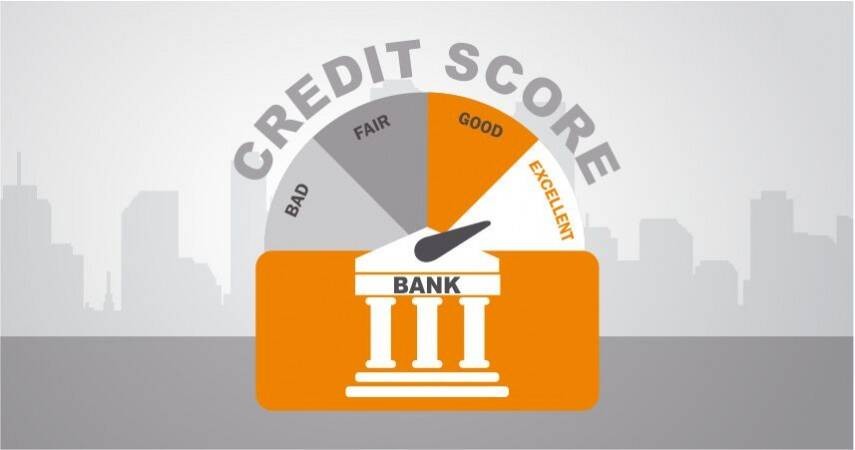A good credit score is a crucial factor when it comes to securing a loan, whether for a mortgage, car purchase, or personal financing. Lenders use credit scores to assess the risk of lending money to borrowers, and a higher score can lead to better lån terms and interest rates. If you’re looking to improve your credit score to qualify for a loan, this guide will walk you through essential strategies to boost your creditworthiness.
Understanding Credit Scores
Before diving into how to improve your credit score, it’s important to understand what constitutes a credit score. Credit scores typically range from 300 to 850, with the following categories:
- Excellent (750-850): You’re likely to qualify for the best loan rates.
- Good (700-749): You’ll generally receive favorable loan terms.
- Fair (650-699): You may have limited loan options and higher rates.
- Poor (550-649): Qualifying for loans can be challenging.
- Very Poor (300-549): You might struggle to get approved for loans.
The most common credit scoring models are FICO and VantageScore, which take into account several factors, including payment history, credit utilization, length of credit history, types of credit, and recent credit inquiries.
1. Check Your Credit Report
The first step to improving your credit score is to check your credit report for this lånse.se, may help you.. You can obtain a free report annually from each of the three major credit bureaus: Equifax, Experian, and TransUnion. Reviewing your report allows you to identify any errors or inaccuracies that may be negatively affecting your score. Common issues include:
- Incorrect personal information
- Duplicate accounts
- Missed payments that were made on time
If you find errors, dispute them with the credit bureau to have them corrected. This can lead to an immediate improvement in your score.
2. Pay Your Bills on Time
Your payment history accounts for about 35% of your credit score, making it the most significant factor. Consistently paying your bills on time can significantly boost your score. Here are some tips to help you stay on track:
- Set Up Reminders: Use calendar alerts or smartphone apps to remind you of upcoming due dates.
- Automate Payments: If possible, set up automatic payments for recurring bills to avoid missing due dates.
- Prioritize Bills: Focus on paying off high-priority bills, such as credit cards and loans, before less critical expenses.
3. Reduce Your Credit Utilization Ratio
Credit utilization refers to the amount of credit you’re using compared to your total available credit. It’s recommended to keep your credit utilization ratio below 30%. For example, if you have a credit limit of $10,000, try to keep your outstanding balance under $3,000. Here’s how to manage your credit utilization:
- Pay Down Existing Debt: Focus on paying off existing credit card balances to lower your utilization ratio.
- Request Credit Limit Increases: If your income has increased or you have a good payment history, consider requesting a credit limit increase to improve your ratio.
- Spread Out Your Spending: If you have multiple credit cards, consider spreading your expenses across them to keep individual card balances low.
4. Diversify Your Credit Mix
Having a diverse mix of credit can positively impact your credit score. Credit scoring models favor borrowers with a variety of credit types, such as:
- Installment Loans: These include mortgages, car loans, and personal loans.
- Revolving Credit: Credit cards are a common form of revolving credit.
If you only have one type of credit, consider diversifying by adding another type, such as a personal loan, to show lenders that you can handle various credit responsibilities.
5. Avoid Opening New Credit Accounts Too Frequently
While having a mix of credit is beneficial, opening too many new accounts in a short period can harm your credit score. Each time you apply for credit, a hard inquiry is made, which can lower your score temporarily. Here’s how to manage new credit applications:
- Limit Applications: Only apply for new credit when necessary and research lenders beforehand.
- Space Out Applications: If you need to apply for multiple forms of credit, try to space out applications over several months to minimize the impact on your score.
6. Keep Old Accounts Open
The length of your credit history also influences your credit score. Closing old accounts can reduce the average age of your accounts, potentially lowering your score. To maintain a healthy credit history:
- Keep Old Accounts Active: Even if you don’t use them frequently, consider making small purchases on older credit cards and paying them off each month.
- Don’t Close Unused Cards: If the card has no annual fee, it’s generally best to keep it open to maintain your credit history.
7. Consider Credit Counseling
If you’re struggling with debt and credit issues, seeking help from a credit counseling service can provide valuable assistance. Credit counselors can help you create a budget, develop a debt repayment plan, and provide education on managing credit effectively. Look for reputable organizations that are nonprofit and accredited by the National Foundation for Credit Counseling (NFCC) or the Financial Counseling Association of America (FCAA).
Conclusion
Improving your credit score takes time and effort, but the benefits are well worth it when you’re looking to qualify for a loan. By regularly checking your credit report, paying your bills on time, managing your credit utilization, diversifying your credit mix, avoiding excessive new applications, and keeping old accounts open, you can build a stronger credit profile.
Remember, patience is key; significant improvements in your score won’t happen overnight. Stay committed to your credit health, and soon you’ll find yourself in a better position to secure the loan you need with favorable terms

